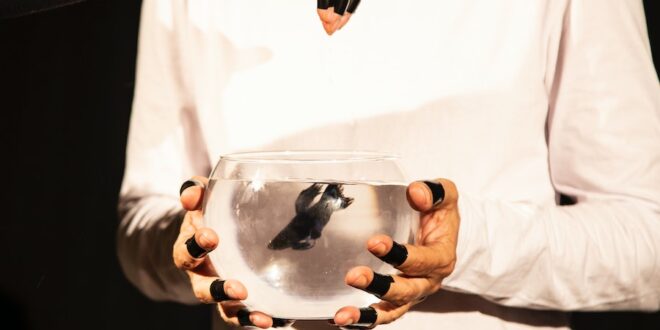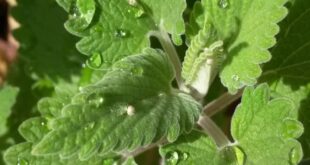Are you curious about what human food your fish can nibble on? Worry no more; here is the article you have been looking for.
When feeding our aquatic pets, a balanced and nutritious diet is important. While commercial fish food is readily available, many fish owners wonder if they can supplement their fish’s diet with human food.
While not all human food is suitable for fish consumption, certain types can be safely offered as a treat or occasional meal. We will provide a helpful guide for fish owners looking to diversify their fish pet’s diet.
So, What Human Food Can Fish Eat?
It depends on the type of fish you are petting. Did you know there are generally three types of pet fish: omnivorous, herbivorous, and carnivorous? So, the type of human food your pet fish can safely eat will depend on its nature.
For instance, herbivorous fish may be able to feed on some fruits and vegetables, while carnivorous fish may eat some kinds of proteins.
Generally, some human foods that fish can eat are hard-boiled egg yolks, blanched lettuce, cooked peas without shells, cooked spinach, cucumber or zucchini, light fish sweet potatoes, and melon.
Pro Tip: To ensure the safety of the fish, any human food provided to them should be in small pieces or minced. This precautionary measure helps prevent any potential choking hazards that may arise from larger food items.
Although it may be tempting to feed your fish human foods when you run out of fish, it is not recommended for several reasons.
- Leftovers and fats can cause cloudiness in your tank. These substances can break down and release particles into the water, leading to poor water quality and potentially harmful conditions for your fish.
- Fish may produce excess waste when fed human foods, which can be relatively unnatural and endanger the overall habitat of the tank.
- Fish foods are specifically formulated to provide fish with essential nutrients to thrive. They are rich in protein, amino acids, healthy fatty acids (lipids), and vitamins.
On the other hand, human foods may not provide the same level of nutrition that fish require. Therefore, relying on human foods as a substitute for proper fish food may result in malnutrition.
- Fish may become accustomed to the taste and texture of human foods and refuse to eat their regular fish food. This can create a challenge in getting them back on a proper diet and meeting their nutritional needs.
Never Feed Your Fish Canned Food
Avoid at all costs feeding your fish canned food. This is because canned foods often contain preservatives and other chemicals that can pose a significant risk to their health.
These preservatives are added to extend the shelf life of the food, but when ingested by fish, they can have detrimental effects on their well-being.
For instance, some preservatives can disrupt the fish’s digestive system, leading to bloating, constipation, or diarrhea.
Moreover, certain chemicals present in canned foods can also negatively impact the fish’s immune system, making them more susceptible to diseases.
What Food Can You Feed Carnivorous Fish?
Carnivorous fish cannot digest plant matter. While you may observe Angelfish or Bettas occasionally nibbling on plants, their digestive systems cannot effectively extract nutrients from vegetation.
Carnivorous fish have a relatively short intestinal tract and a large stomach for accommodating chunks of food.
Bigger carnivorous fish can consume an entire fish in a single bite, necessitating their larger mouths and sharp teeth, as seen in Arowanas. If you have predatory fish, you can try feeding them the following food:
- Snails
- Brine shrimp
- Bloodworms
- Whitefish (cod, tilapia, pollock)
- Crickets
- Mealworms
- Daphnia
- Table shrimp
- Chicken scraps
What Food Can You Feed Herbivorous Fish?
Only a few aquarium fish exclusively do an herbivorous diet. Many species feed on plants, even if they aren’t true herbivores.
Examples include Goldfish, Angelfish, Koi fish, and certain Tetras. Some avid plant consumers like Silver Dollars or Chinese Algae-Eaters can adapt to a plant-based diet without specialized fish food flakes.
Herbivorous fish have a digestive system optimized for plant breakdown, aided by flat teeth resembling tiny grinders.
They can only consume limited quantities due to smaller stomachs. That’s why they feed more frequently. Here are suitable alternatives for herbivorous fish aside from fish food:
- Steamed or boiled root vegetables (e.g., broccoli, carrots, cauliflower, pumpkin, potatoes).
- Softened peas
- Small fruit portions (e.g., apples, mangos)
- Spirulina
- Leafy greens like lettuce
Herbivorous, like omnivores, fish are easier to feed new food alternatives because they are not picky eaters like carnivores.
What Food Can You Feed Omnivorous Fish?
Most aquarium fish exhibit an omnivorous diet in their natural habitat, although individual preferences vary.
Some lean towards meaty fare, like fairy wrasses, while others opt for algae and plant matter, a trait commonly found in bottom-feeding catfish.
The omnivorous aquarium fish digestive system can process nutrients from both animal and plant sources.
This makes them the easiest pet fish to feed when you run out of fish food. Some trial and error may be necessary to determine your omnivorous fish’s preferences.
Here’s a selection of protein-rich food options for omnivorous fish flakes:
- Insect larvae
- Insects
- Crustaceans (e.g., shrimp, crayfish, copepods, crabs)
- Snails
- Hard-boiled egg yolk
For omnivorous fish inclined towards plant-based foods, consider offering:
- Cucumber (with seeds and soft interior removed)
- Lettuce
- Boiled peas, carrot, broccoli, pumpkin, potato, & cauliflower
- Zucchini (seeds and soft interior removed)
- Edible aquatic plants such as duckweed, Egeria densa, and Hygrophila.
Tips For Feeding Your Fish: Precaution
- Avoid feeding your fish, cat, or dog food, as it’s tailored for their specific dietary needs and lacks essential nutrients for fish. Furthermore, it might contain fish-unfriendly additives like preservatives.
This tip goes to cat and dog owners who are likely to be tempted to try and feed their fish, cat & dog food.
- Do not feed bread to your fish, as it poses significant risks. Its components, including yeast, wheat, salt, and preservatives, can lead to dangerous bloating, potentially fatal for fish.
- Steer clear of beef, chicken, or pork as fish food, as these meats are typically high in fat. This can cause digestion challenges and potential health hazards for your aquatic pets.
- Exercise caution with excessively fatty foods, as a lot of fat can harm a fish’s liver and reproductive organs. Additionally, as you know, the fats will stick to the tank, which will not look so good.
- Never introduce cooking oils into your tank. Cooking oil can poison your aquatic livestock and contaminate the water.
How To Introduce Human Food To Pet Fish
While sharing your meals with your aquatic friends may be tempting, certain precautions must be taken to maintain their health.
The first thing you need to do is to research and understand the dietary requirements of the specific fish species you have.
Different fish have varying nutritional needs, and not all human foods suit them. Feeding fish an improper diet can lead to digestive issues, nutrient deficiencies, and even death.
Therefore, it is important to consult with an aquatic specialist to determine what human foods can safely incorporate into their diet. Once you have identified suitable human foods for your fish, you must introduce them properly.
Fish have delicate digestive systems, and sudden changes in their diet can cause stress and illness. Start by gradually introducing small amounts of the chosen human food, allowing the fish time to adjust.
Observe their behavior and monitor for any signs of distress or adverse reactions. If the fish show no negative effects, you can continue incorporating human food into their diet in moderation.
Additionally, you must ensure that any human food you introduce into the fish tank is free from contaminants and harmful substances. Do not feed your fish human foods containing additives and preservatives, as they can be toxic.
Conclusion
What human food can fish eat? It is important to understand that not all human food is suitable for fish consumption.
While certain types of human food can benefit fish, such as vegetables and fruits, ensuring they are adequately prepared and free from harmful additives is crucial.
Fish have specific dietary requirements, and their nutritional needs should be met through a balanced diet of commercial fish food specifically formulated for their species.
While it may be tempting to share our meals with our aquatic pets, it is essential to prioritize their health and well-being by providing them with the appropriate nutrition they need to thrive.
 Being Human
Being Human





